Gugak National Middle & High School Students Visit the World Music Center
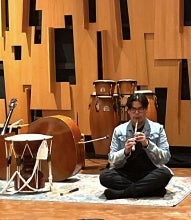
On 3 June 2024, thirty-five students and three guardians from the Gugak National High School and the Gugak National Middle School in Korea visited the World Music Center at UCLA, including the Ethnomusicology Archive and the World Musical Instrument Collection. They were warmly welcomed by Supeena Insee Adler, Donna Armstrong, John Lee, Paul Bancel, Max Navarro, Janice Nam, Jodie Ryu, and Juan Del Real.
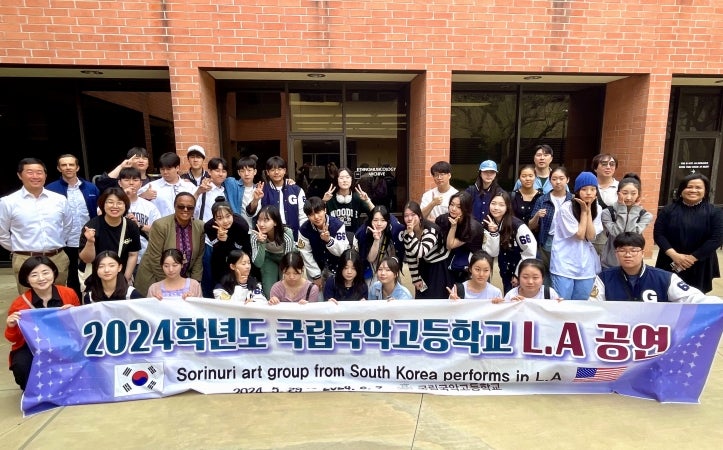
Gugak National High School and the Gugak National Middle School students visiting UCLA Ethnomusicology, 3 June 2024.
The presentation--which included video excerpts from this year's concerts, workshops, and community engagement projects--was very engaging, providing the students with a comprehensive overview of the Department of Ethnomusicology.
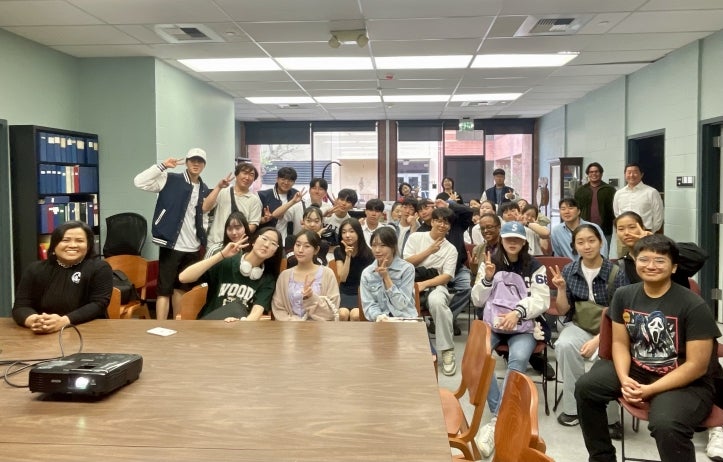
Gugak National High School and the Gugak National Middle School students visiting UCLA Ethnomusicology Archive, 3 June 2024.
After the presentation, the visiting students had the opportunity to explore the World Musical Instrument Collection and to practice playing several instruments. The tour was led by Supeena Insee Adler, the World Musical Instrument Collection Curator and Conservator. The students also visited the music practice rooms for India, China, Korea/Thailand, the Near East, and the Gamelan. They even enjoyed a surprise mini concert in the Gamelan Room, when Cory Poon, one of the talented students in the Music of China Ensemble gifted them with an impromptu performance on the guzheng.
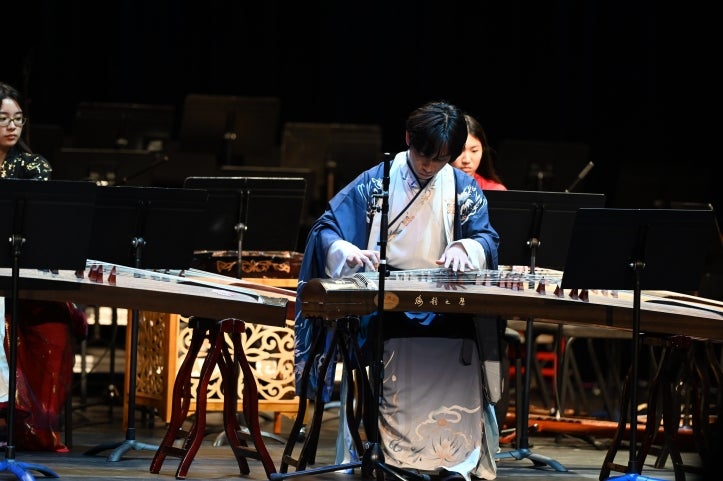
Cory Poon playing guzheng, 18 May 2024.
The group from Korea was accompanied by Ms. Mo Jung-Mi, the principal of the Gugak National Middle & High School.
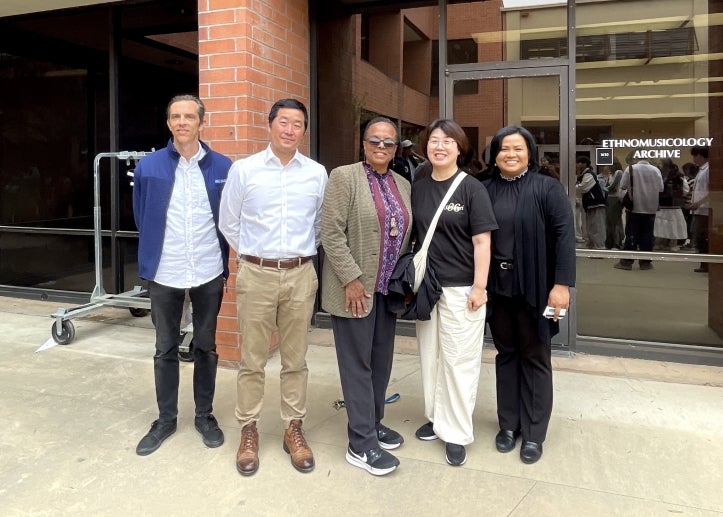
(l-r) Paul Bancel, John Lee, Donna Armstrong, Ms. Mo Jung-Mi, Supeena Insee Adler, 3 June 2024.
Established in 1972, the school continues to uphold the rich cultural heritage from the Silla, Goryeo, and Joseon Dynasties, offering 13 different majors in Korean music and dance.
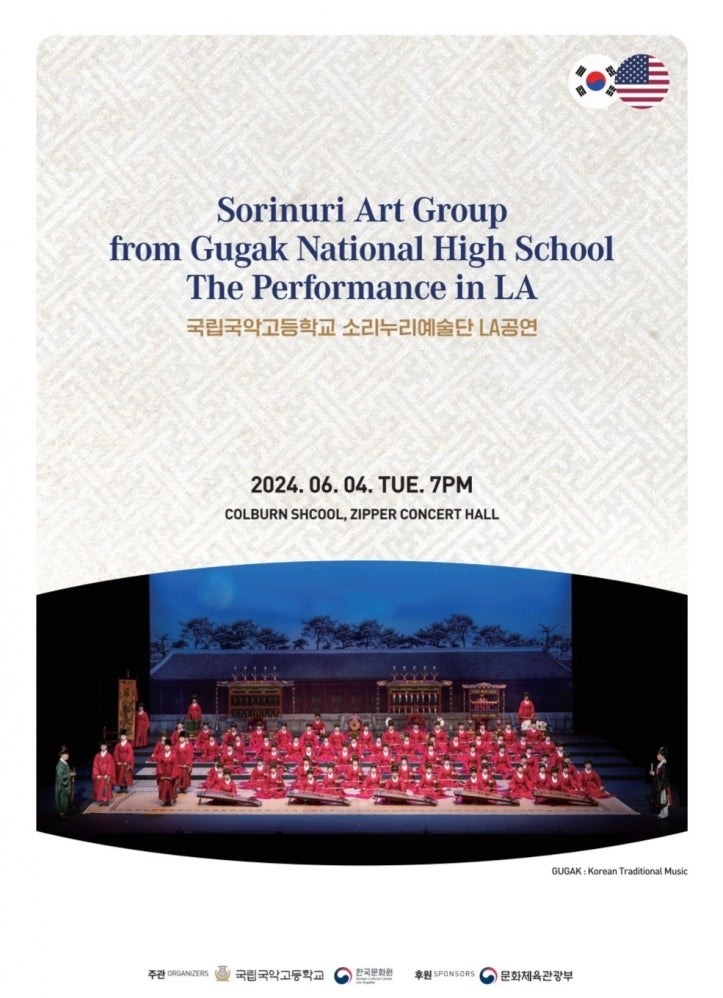
Photos courtesy Supeena Isee Adler.





